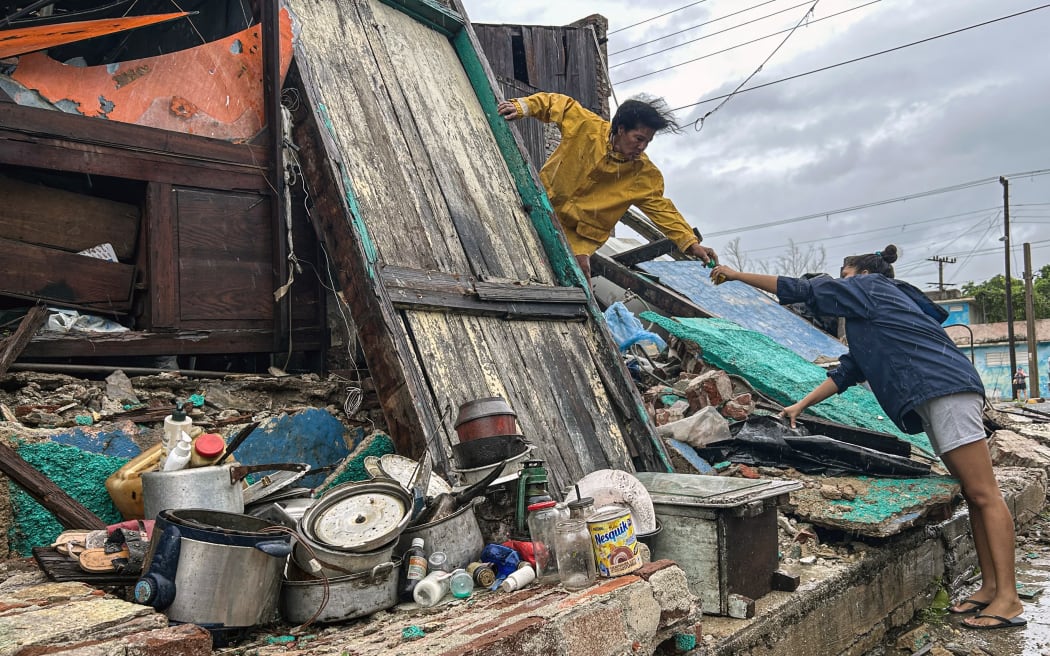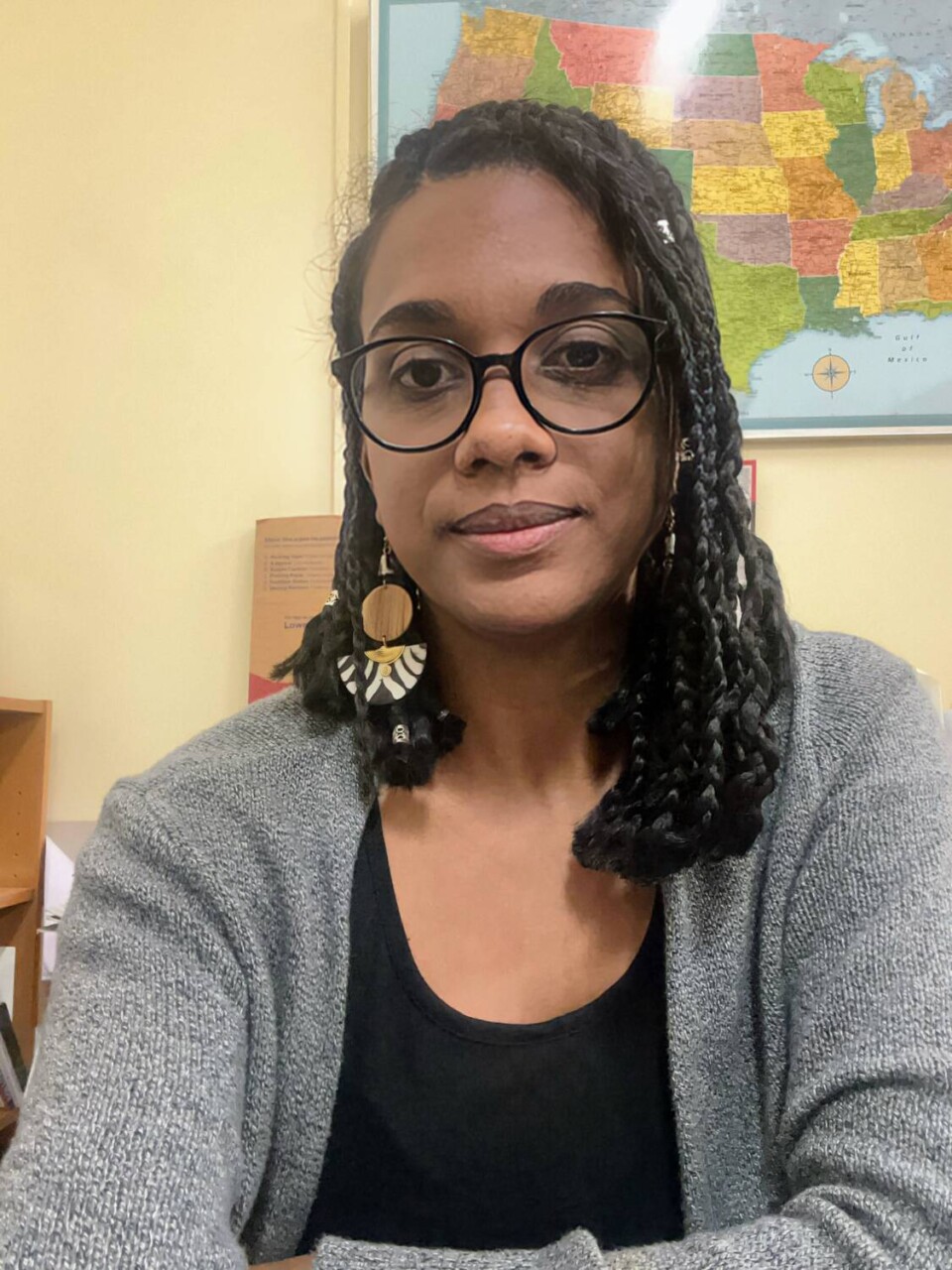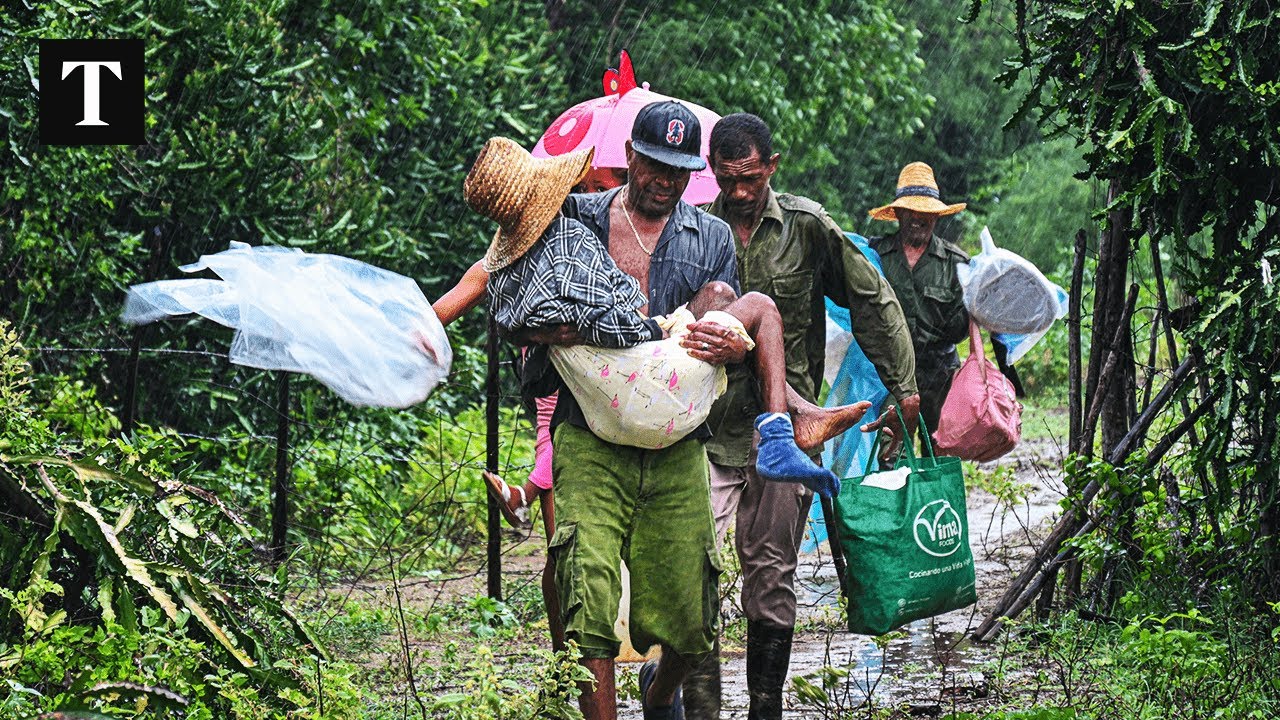
by JR Valrey, The People’s Minister of Information
To call Cuba resilient is an understatement when you look at the fact that the United States government, both Democrats and Republicans, have imposed a genocidal blockade on the Caribbean nation, the Republic of Cuba, for over six decades. As time goes on, and the US government continues to criminally strangle the Cuban economy, the situation gets more dire.
Recently at the United Nations General Assembly the annual vote to end the blockade was taken, with Cuba winning overwhelming support despite the propaganda and CIA mafia tactics that were employed to get weaker countries to support US crimes against humanity in the form of the longstanding blockade.
Second Secretary Gabriela Castillo from the Cuban Embassy to the US graciously took some time out of her busy day to inform us about Hurricane Melissa hitting eastern Cuba, as well as the annual UN vote to end the US-imposed blockade on the island nation, which is 90 miles off the coast of Florida.
JR Valrey: The United Nations vote on October 29th to end the blockade was 165 countries to 7 with 12 abstainting. What does that overwelming support say to you?

Second Secretary Gabriela Castillo: This year’s result sends a clear and powerful message from the international community. Once again, an overwhelming majority of UN member states have called for the end of the U.S. blockade against Cuba — a policy that is not only unjust and contrary to international law, but also profoundly harmful to the daily lives of Cuban families.
The 2025 vote carries even greater significance because it came after a particularly hostile campaign aimed at discrediting Cuba and distorting the truth about the enormous human cost of the blockade. A campaign filled with falsehoods and even threatening language, in an attempt to influence the voting results and silence Cuba’s reality.
Despite that, or perhaps because of it, the world responded with clarity and dignity. The outcome reaffirms the near-unanimous global rejection of unilateral coercive measures and the respect for Cuba’s sovereignty and the right of our people to build their own future free from external pressure. It is a victory of truth, principle and solidarity.
JR Valrey: Can you be specific in describing how the lives and dreams of the Cuban people have been stifled because of this blockade that has been in place for over six decades?
Second Secretary Gabriela Castillo: For us, the blockade is not an abstract concept — it’s something we feel every day.
Imagine a mother who can’t find her child’s medicine because an American company holds the patent, and others are afraid to sell it to us. Imagine a hospital unable to repair an X-ray machine because the spare parts have more than 10% U.S. components.
That is the human face of the blockade. It affects food, energy, education, transportation — every aspect of daily life. And it hits the most vulnerable first: children, the elderly, people with chronic diseases.
Just to give you an idea: 22 days of blockade losses would be enough to fund Cuba’s entire annual program for basic medicines. Ten minutes without the blockade could provide hearing aids for every child with a disability in our schools.
So when we talk about “sanctions,” we are really talking about suffering. The blockade kills dreams, but it has never killed our dignity.

JR Valrey: U.S. politicians are distorting reality when they claim that the blockade is not hurting the Cuban economy, because Cuba has maintained a tourist industry. What is your response to this preposterous statement?
Second Secretary Gabriela Castillo: That argument is simply dishonest. The existence of tourism does not prove that the blockade doesn’t exist — it proves our resilience.
Cuba has found creative ways to survive and move forward despite enormous obstacles, but that does not mean those obstacles aren’t real.
Even tourism is targeted. U.S. policy penalizes European and Canadian citizens who visit Cuba by denying them visa-free entry to the United States afterward.
And let’s not forget: U.S. law allows certain food sales to Cuba, but only under extreme conditions — we must pay cash in advance, with no credit or financing, and we can’t export anything in return. That’s not trade. That’s coercion.
So the idea that Cuba’s economy is unaffected by the blockade is not only false — it’s insulting to the truth and to the suffering of millions of Cubans.
JR Valrey: What can people in the US who are in solidarity with Cuba do to help?
Second Secretary Gabriela Castillo: I believe that awareness and dialogue are essential. The more people in the United States learn about the real impact of the blockade on the daily lives of Cuban families, the closer we all get to understanding why this policy must end.
Solidarity can take many forms — through cultural exchange, academic collaboration, or simply by sharing truthful information about Cuba.
I have met many people in this country who genuinely care about justice and fairness and who understand that this is not a political issue, but a human one.
So I would say: Stay informed, stay engaged and help others see Cuba beyond the headlines — as a nation of people who, despite enormous challenges, continue to build, to create and to share what we have with the world.
JR Valrey: Record breaking Hurricane Melissa has been getting some coverage on how it has ravaged Haiti and Jamaica, but it has also wreaked havoc in eastern Cuba. Can you describe the impact?
Second Secretary Gabriela Castillo: Hurricane Melissa has had a devastating impact on eastern Cuba, particularly in the province of Santiago de Cuba and surrounding territories. It struck with extraordinary force at a time of considerable economic hardship, causing serious damage to homes, infrastructure, agriculture, and essential services.
The exact extent of the material damage is still being assessed, as communication and access remain difficult in some areas. However, the images and testimonies that continue to emerge are truly heartbreaking. From the very beginning, all possible measures were taken to protect lives — which is always our top priority — and thanks to the preparedness of our Civil Defense system, many lives have indeed been saved.
We also join in the pain of our Caribbean sisters and brothers in Haiti, Jamaica and other nations that have suffered the fury of this hurricane. This shared tragedy reminds us of the urgent need for solidarity and cooperation among our peoples in the face of increasingly destructive climate events.
JR Valrey: Where can people get more information online or on IG?
Second Secretary Gabriela Castillo: You can follow updates and educational content about Cuba and the human cost of the blockade through official Cuban diplomatic pages, solidarity organizations such as NNOC (National Network on Cuba), and the hashtags #LetCubaLive and #EndTheBlockade.
You can also visit the official website of Cuba’s Ministry of Foreign Affairs (MINREX) and the Embassy of Cuba in the United States on Instagram and X, where you’ll find real stories, facts, and testimonies about how the blockade affects everyday life.
JR Valrey is a veteran journalist who can be heard weekly on Wednesdays on 89.5FM KPOO or KPOO.com from noon to 3 p.m. His work can also be heard on www.blockreportradioworld.com.




